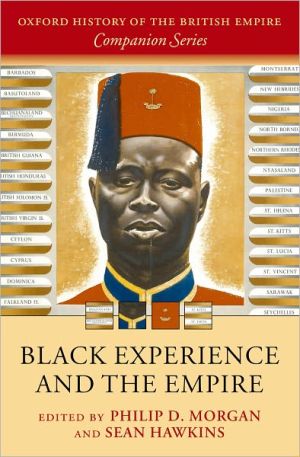

 |

|

The average rating for Black Experience and the Empire based on 2 reviews is 4.5 stars.
Review # 1 was written on 2009-02-07 00:00:00 Jim Moineau Jim MoineauAda Ferrer's reconstruction of the Cuban independence wars traces the attempt of democratic patriots to construct a united republic on the diverse social foundation laid by Spanish colonialism. Their attempt did not succeed; but Ferrer does, in her resurrection of a subject still as divisive in the Cuban present as it was in the anti-colonial wars. My main critique of her book is its repetitious rewording of the same points in virtually every long paragraph. Better self-editing would have reduced the text by a third without loss of content. But she unquestionably establishes how the vision of a raceless society was betrayed by the hard realities of class as well as color. The white elites of the period, for all their liberal-democratic rhetoric, would simply not surrender their privileges of "civilization" - education and property - to aspiring "usurpers" from below, however useful the latter's flesh and blood to the "cause of all." Modern Cuban historians, in Havana or Miami, take Cuban "racelessness" and the pronouncements of Marti at face value, but the betrayal of this ideal was plain in the face before the American invasion of 1898. For Miami, white Cuban racism was a myth invented by Spain and exploited by Castro; for Havana, it was a Yankee imposition "solved" by the revolution of 1959. Ferrer demonstrates that neither was truly the case, though Spain and the US exploited racism for their own ends. The pitiful attempts by Antonio Maceo to deny the blackness of his insurgency lends tragedy to the betrayal of the liberal republic. But Marti's own upper-class patronizing also (unwittingly) aided the bloody climax of the issue in the 1912 "war of color", the last battle of Maceo's vision. As added indicator of the "incorrect path" where this inquiry leads, recall that the revolutionaries of 1933 and 1959 were nearly all led by the "white and civilized." Between that time Batista emerged as leader in apparent fulfillment of Maceo's legacy, revered by many of color as "our golden mulatto". The bitterness of those early years lasted deep into the republic, alienating those who were "supposed" to be "for" the next round of revolution. Castro and his "new republic" have been accused of the same white liberal paternalism as were Jose Marti and Maximo Gomez; while black nationalists of the 1960s, originally passionate about the revolution, have echoed the same complaints as their predecessors of color: that Cuban anti-racism is merely a patronizing cloak for white privilege, even under Communism (see especially Ruth Reitan's "Rise and Decline of an Alliance: Cuba and African American Leaders in the 1960s".) It's also tempting to draw other parallels and differences with that next successful revolution in Cuban history. For Fidel Castro, the purge fell upon the right: that is, on those same privileged classes and North American allies whose judgment determined the fate of the first republic. This was one of his many revolutionary "acts of repudiation" in claiming the mantle of Cuban history. The United States and the elites of Havana held the guerrillas of the Sierra Maestra and their threat of red socialism in the same fear and contempt directed, in the 1890s, toward insurgents of another color. It's therefore interesting to speculate the outcome of the independence war, if the Maceo brothers had lived and taken its insurgent leadership, as did the brothers Castro sixty years hence. Would the Maceos have fulfilled their opponents' fears, maybe declaring all true revolutionaries were by definition "colored" regardless of race? And fought US troops as fiercely as they had Spain's? Regardless, the sensitivity of this issue for Cubans of all persuasions, on or off the island, remains acute. Whatever future awaits Cuba in a time of transition, this legacy confirms William Faulkner's adage that the past is not only present, it's not even past. |
Review # 2 was written on 2020-05-27 00:00:00 David Ficocelli David Ficocelli4.25 🌟 A detailed look at the 19th century wars Cuban fought for an Independence that ended in USA occupation (for a time). Ferrer pulls from a wealth of material, including first person accounts to look explicitly at how class, race and (to a much more limited extent) gender shaped the insurgent movement in particular. There are instances in which her "neutral" tone implicitly enforces an Eurocentric take but readers ought to find it easy enough to sift the good. Written in an accessible English. As always, the end notes wrecked my TBR. It was inspiring to read how black military and civilian leaders owned and expanded on the high minded anti racist ideals the white devils tried to ginal out of or use against them. Caribbean history is wonderful. Take a look, it's in a book etc. 🌈. |
CAN'T FIND WHAT YOU'RE LOOKING FOR? CLICK HERE!!!